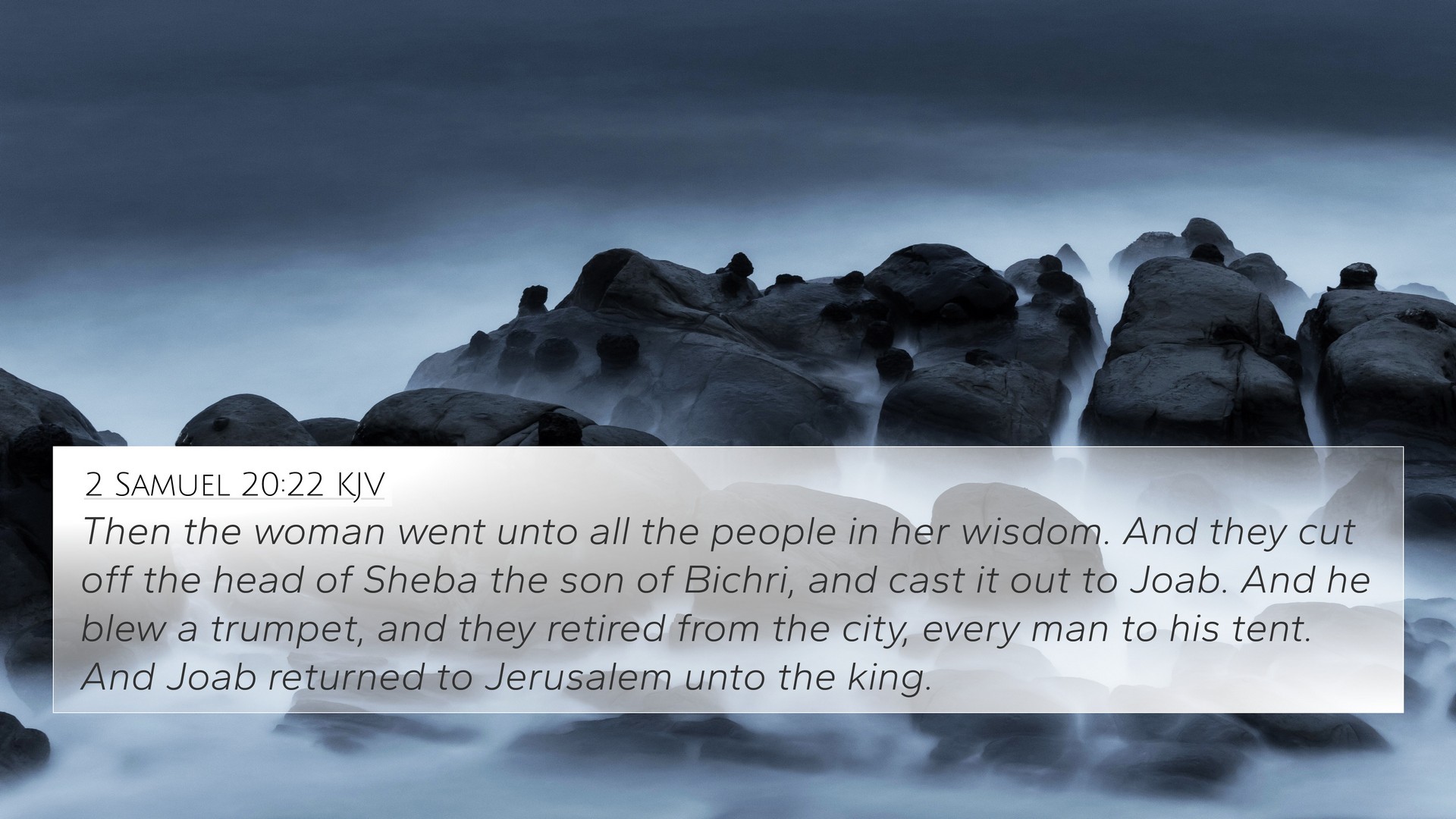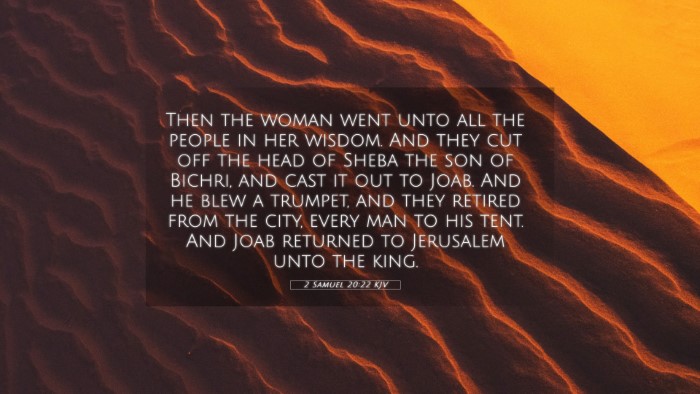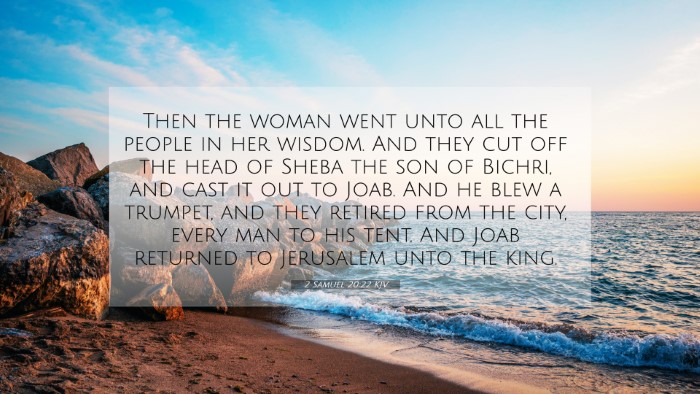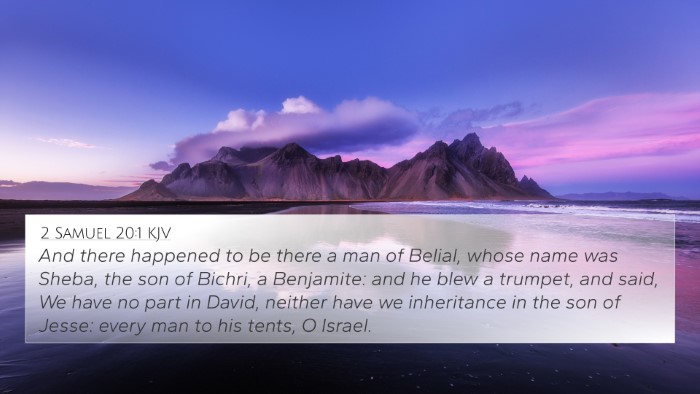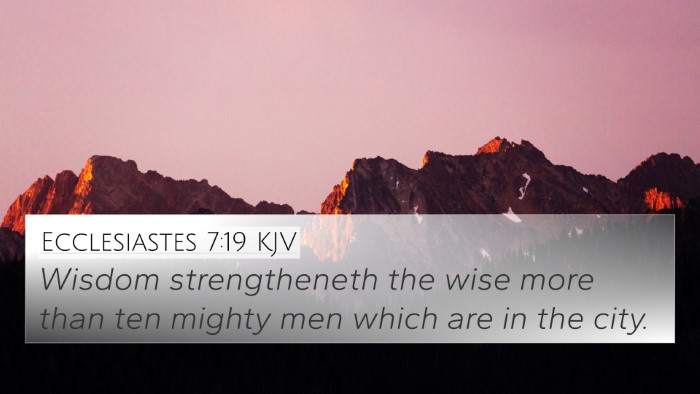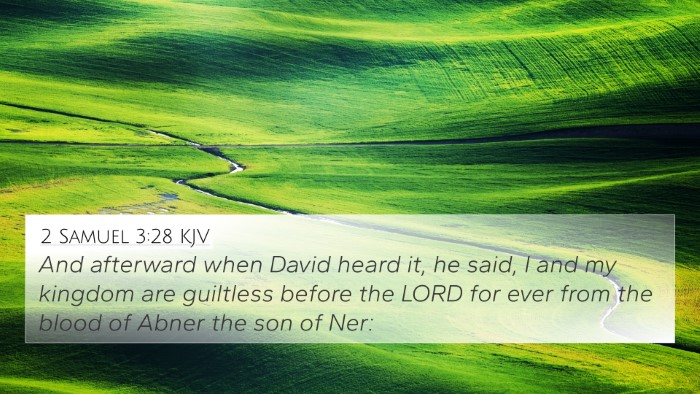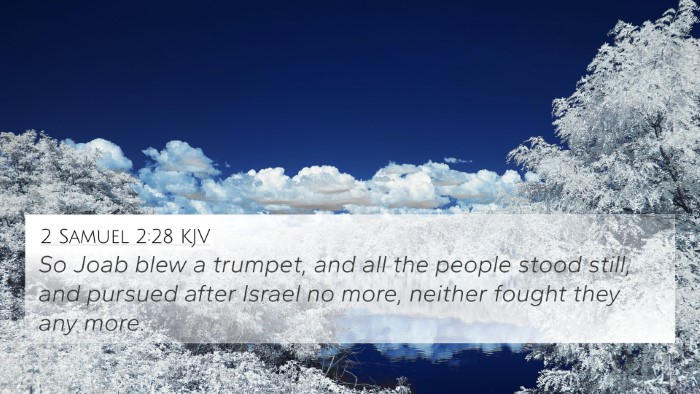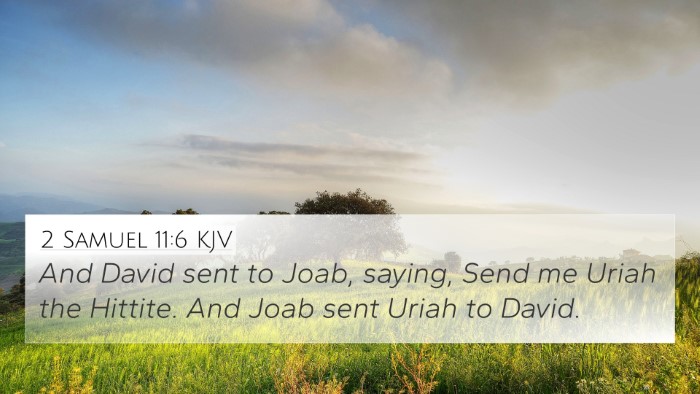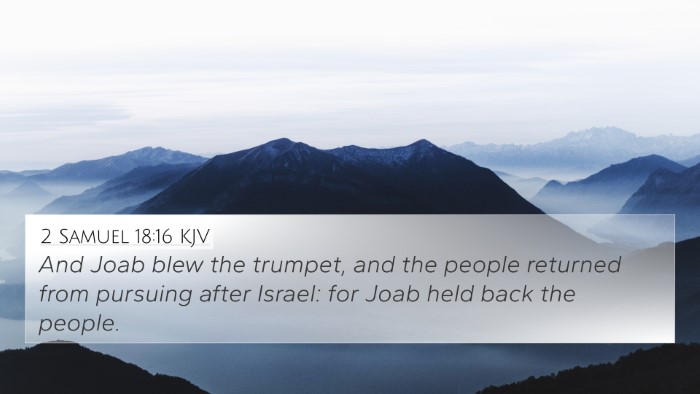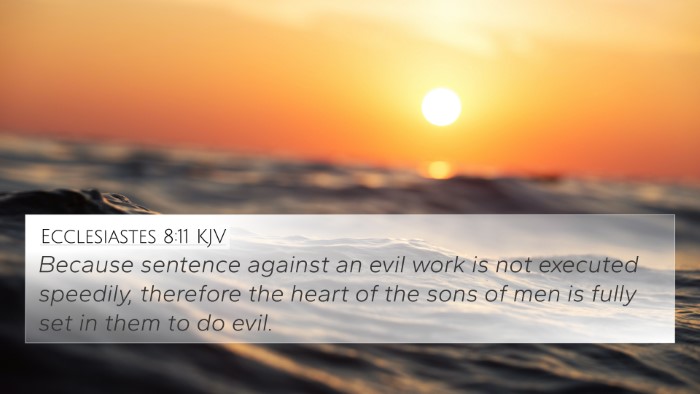Understanding 2 Samuel 20:22
Verse: "Then the woman went unto all the people in her wisdom; and they cut off the head of Sheba the son of Bichri, and cast it out to Joab. And he blew a trumpet, and they retired from the city, every man to his tent. And Joab returned to Jerusalem unto the king." (2 Samuel 20:22)
Summary of Verse Meaning
In 2 Samuel 20:22, we witness a remarkable episode following the rebellion led by Sheba, the son of Bichri, against King David. The verse highlights the effectiveness of a wise woman from Abel who undertakes the crucial action of resolving the conflict. This passage exemplifies themes of wisdom, authority, and the necessity of prompt decision-making in leadership roles.
Key Insights from Public Domain Commentaries
-
Matthew Henry:
Henry emphasizes the significance of the woman’s wisdom and authoritative voice in quelling the rebellion. He underscores how her clever diplomacy restores peace, demonstrating the power of wisdom over brute force.
-
Albert Barnes:
Barnes elaborates on the cultural context, noting that the woman's intervention reflects a rare instance of female influence in biblical narratives. He interprets her actions as emblematic of the broader theme of God using unlikely individuals to accomplish His purposes.
-
Adam Clarke:
Clarke provides insight into the symbolism found in the act of cutting off Sheba’s head and casting it out, reflecting the finality of judgment and the restoration of order. He connects this act with Old Testament customs relating to retribution and communal responsibility.
Thematic Connections and Cross-References
This verse resonates with various biblical themes, both drawing on and contributing to broader narratives within Scripture.
Cross References
- 2 Samuel 3:30: Highlights the political turmoil during David's reign, providing a backdrop for the understanding of Sheba’s rebellion.
- Judges 9:53-54: Offers context on heads being cut off as an act of judgment, illustrating cultural practices surrounding treachery.
- Proverbs 14:1: Relates a wise woman’s ability to build her house, resonating with the wisdom displayed by the woman in Abel.
- Ecclesiastes 9:18: "Wisdom is better than weapons of war," highlighting the importance of wisdom in resolving conflicts.
- 1 Samuel 25:32-33: Discusses the impact of wise actions taken by women, emphasizing their critical role in biblical history.
- Psalm 122:6-7: Encourages peace in Jerusalem, aligned with the resolution achieved in this narrative.
- James 1:5: "If any of you lack wisdom, let him ask of God," a reminder of the divine source of wisdom highlighted in the woman’s actions.
- Matthew 10:16: “Behold, I send you out as sheep in the midst of wolves. Therefore be wise as serpents and harmless as doves,” connecting to the need for wisdom in dangerous situations.
- Luke 7:35: Discusses the wisdom being justified by her children, paralleling the theme of beneficial outcomes of wise actions.
- Acts 5:38-39: Highlights the importance of discernment in leadership, linking to the woman's clever negotiation and the results of her actions.
Insights on Wisdom in Leadership
Throughout the Bible, wisdom is often portrayed as a fundamental quality for leadership and resolution in conflicts. The woman from Abel showcases how divine wisdom can lead to peace and restoration:
- Wisdom vs. Force: The woman’s decision to negotiate rather than resort to violent means emphasizes the value placed on wisdom in scriptural narratives.
- Divine Guidance: The verse calls attention to the idea that God may respond to the cries of His people through unexpected channels, illustrating His sovereign intervention.
- Community Responsibility: The act of the community in delivering Sheba to Joab reflects the biblical principle that leaders are accountable to their citizens, and vice versa.
Conclusion
2 Samuel 20:22 serves as a profound reminder of the power of wisdom, the significance of decisive action in leadership, and the critical role of individuals in the broader narrative of God’s people. The insights from various commentaries reinforce the notion that divine wisdom not only resolves conflicts but also restores peace and order.
